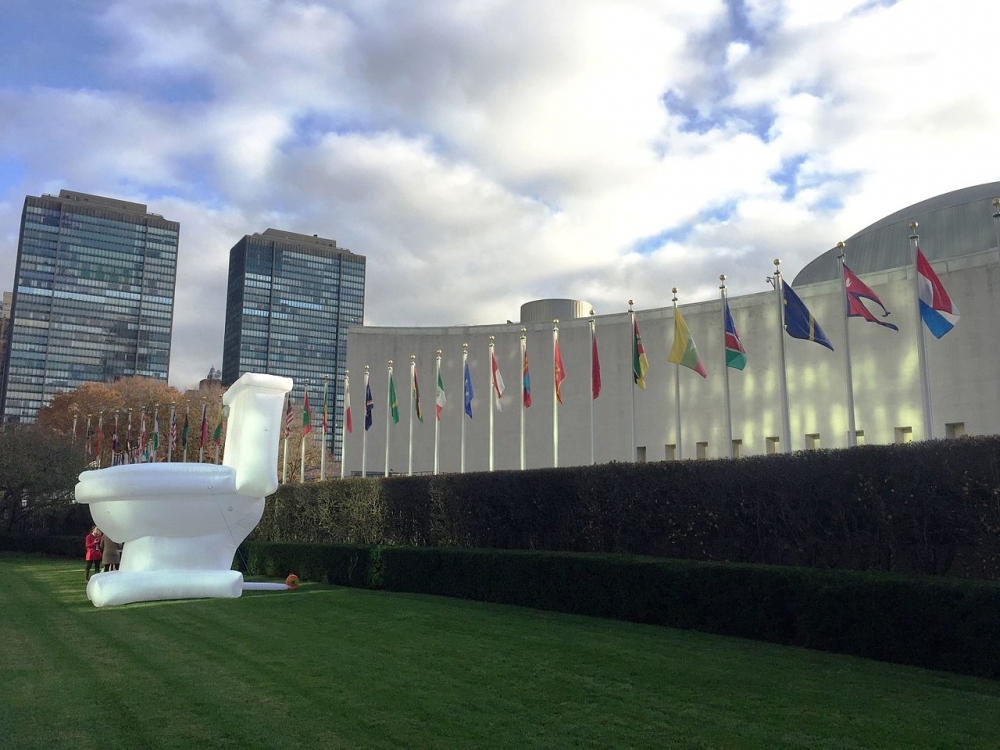“Who Doesn’t Have a Toilet?”

Shockingly 2.4 billion people in the world do not have access to clean or safe toilets. Poor sanitation increases the risk of disease and malnutrition, especially for women and children. It is estimated that 50 per cent of this undernutrition is related to diarrhoea or repeated infestations of intestinal nematodes caused by unsafe drinking water, inadequate sanitation and/or poor hygiene conditions (WHO, 2017).
World Toilet Day inspires action to tackle the global sanitation crisis and raises awareness about importance of providing toilets in support of better nutrition and improved health. It is co-ordinated by UN-Water and is backed by governments and relevant stakeholders around the world.
"Women and girls risk rape and abuse every day because there is no toilet anywhere in reach that offers them both privacy and security. Many have to resort to releasing themselves outside in bushes" - WaterAid, 2017
By 2030, the Sustainable Development Goals aim to reach everyone with sanitation, and halve the proportion of untreated wastewater and increase recycling and safe reuse. Wastewater is the theme for this year's World Toilet Day and the UN are asking the question “where does our poo go?”.
Although the day is celebrated on 19th November, initiatives to improve sanitation are happening all the time around the world. Residents of Achampatti in Oomachikulam, a village in India, have taken matters into their own hands and built individual toilets for 369 houses. Out of 373 houses, 148 have solar lighted toilets. In another village, Kattakulam, three brothers, who are suffering from locomotor disability, urged their parents to build a toilet at home. Not only did they make a positive impact on their own lives, others have been inspired and have followed their example.
Another example is Mark Lloyd, a man from Seattle, who has become a one-man army when it comes to taking action. With his creation of portable potties he is trying to tackle the problem by providing toilets to those in need in the United States. While not having means to safely dispose of human waste seems abstract in the developed country, the reality is that more than 1 million people in the US live in homes that lack a tub or shower, running water or a toilet.
Sanitation is the most–missed target of the Sustainable Development Goals which is why open defecation needs to end by 2030. As more companies and organisations support progress towards the SDGs, the world will be closer to reaching this target. Kimberly-Clark launched "Toilets Saves Lives" program in the UK, which helped to improve the lives of at least 500,000 people worldwide with aim to increase this to 5 million people by 2022.
To learn more about World Toilet Day, click here
If you enjoy reading our content, sign up here to receive AIDF newsletter and get updates about latest articles and reports directly to your inbox.














